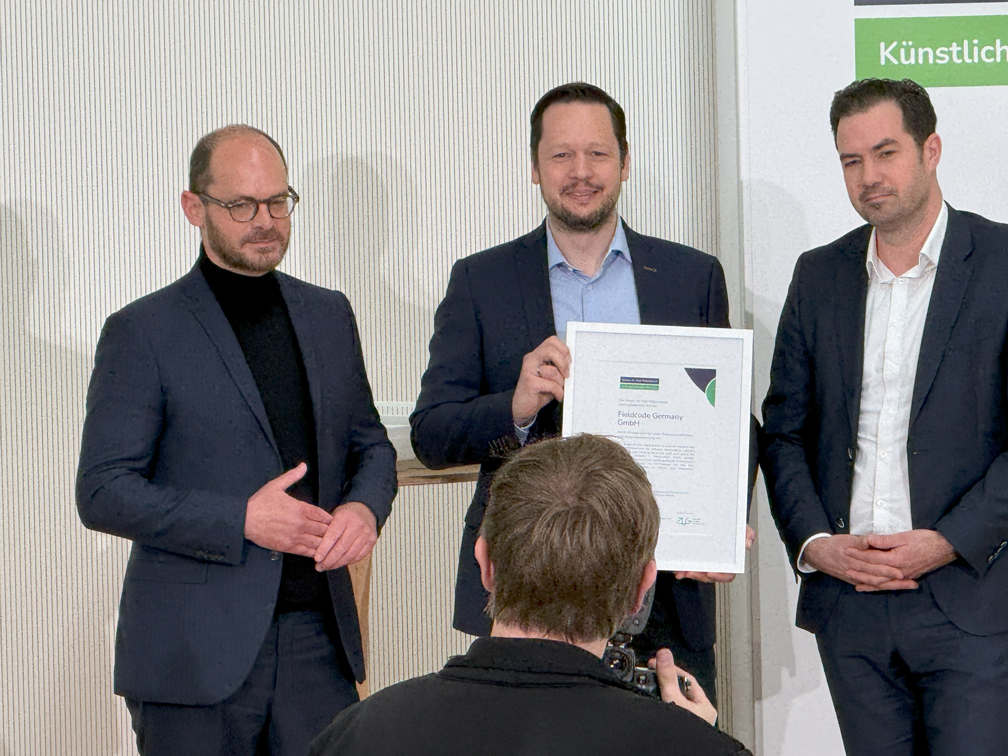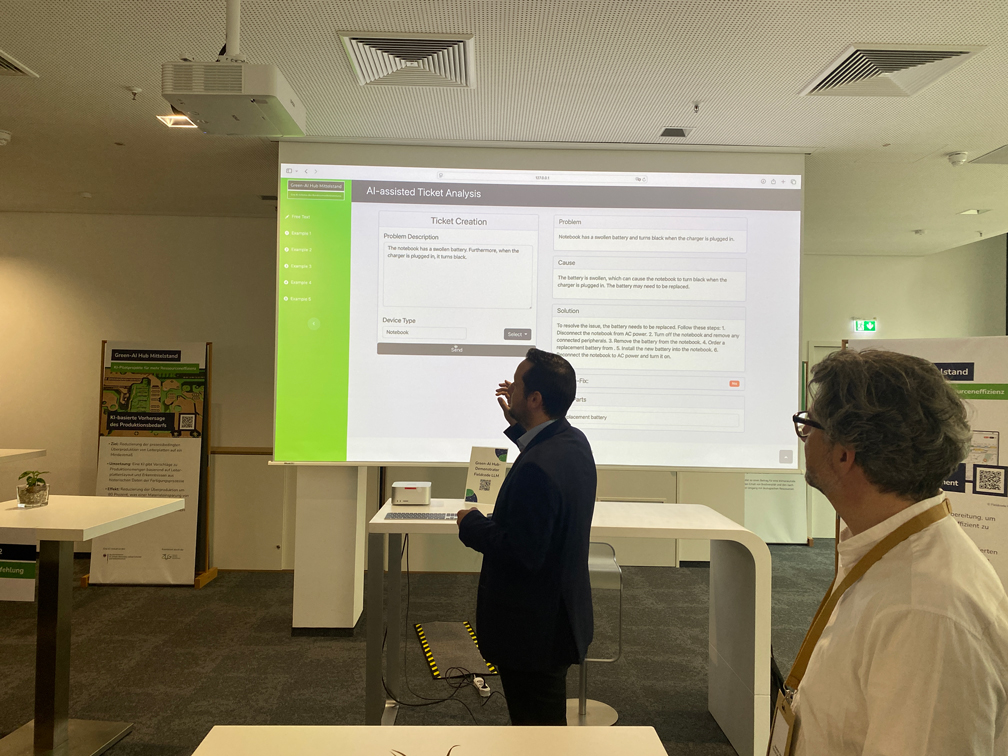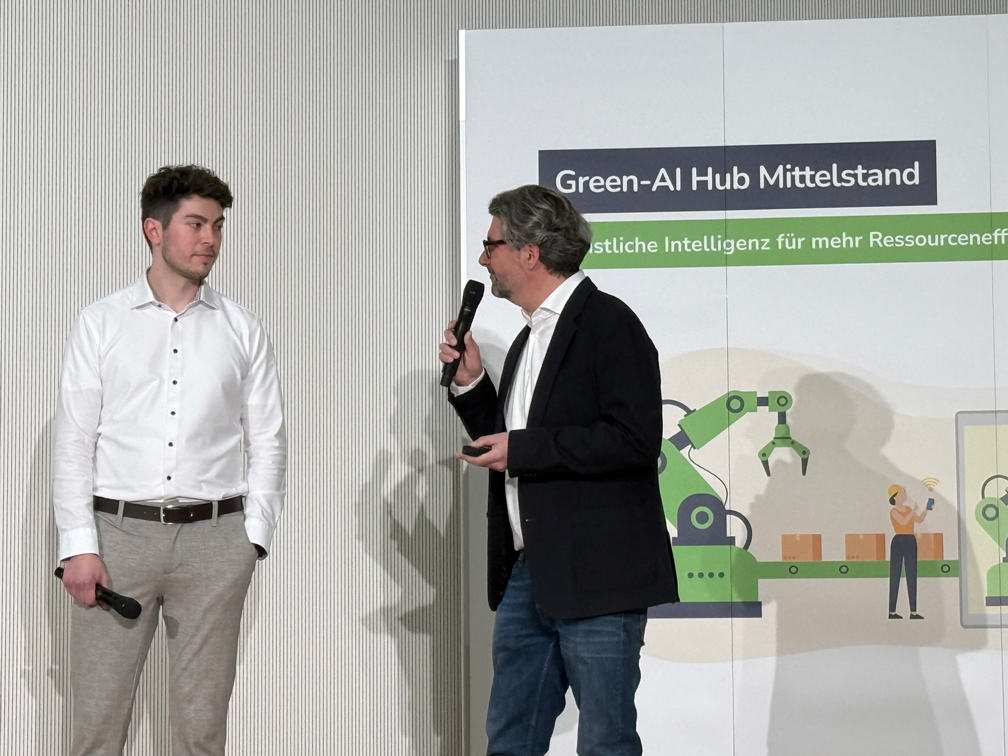AI for resource efficiency: Fieldcode at Green-AI Hub Forum 2025
On April 10, Fieldcode joined innovators, policymakers, and sustainability advocates at the Green-AI Hub Forum 2025 in Berlin. The event focused on how artificial intelligence can support greater resource efficiency and help small and medium-sized businesses adopt more circular economy practices.
The agenda featured a range of discussions, including the future of Green AI Hub in industry, regulatory developments, and real-world pilot projects already in motion. Fieldcode’s Matthias Lübko was there to join the panel “What’s the next step for Green AI in companies?” to share insights from Fieldcode’s ongoing collaboration with Green-AI Hub.
Reducing site visits with smarter ticket diagnostics
During the session, we discussed Fieldcode’s pilot project with Green-AI Hub, which applies Large Language Models (LLMs) to analyze field service tickets. The system draws from historical ticket data and freely available technical documentation to determine whether a service request can be resolved remotely—or if a technician visit is necessary, and which spare parts should be carried.
The goal is to reduce unnecessary site visits, increase first-time fix rates, and limit the overuse of spare parts, helping companies lower emissions and avoid waste.

Every avoided trip is one step closer to a more sustainable way of working. We’re showing how AI can support better decision-making while reducing environmental impact.
What stood out at the forum
Several key themes emerged throughout the day:
The growing role of open-source AI tools in helping SMEs access scalable, cost-effective solutions.
New insights into the evolving “Rules for Green AI”, which will guide the responsible development and use of AI in Germany.
Pilot project presentations that showed how AI is already driving progress in resource efficiency, reducing material waste, and streamlining operations.
Why AI matters for field service management
Field service operations often involve significant travel, logistics coordination, and spare parts usage. Left unchecked, these processes can lead to excess emissions, overstocked inventory, and repeat site visits.
By applying AI in the right areas, field service organizations can:
Improve first-time fix performance
Reduce unnecessary dispatches
Avoid spare parts overuse
Lower the carbon footprint of daily operations
Fieldcode’s approach is built around making these improvements possible—without requiring teams to change the way they work. AI is embedded into the service flow, delivering real-time insights that support more efficient, sustainable decision-making.




What’s next
Fieldcode’s collaboration with Green-AI Hub builds on its existing Zero-Touch FSM automation by introducing LLM-based ticket management for field service management. While Zero-Touch already automates ticket creation, assignment, and dispatch, the pilot project explores how domain-specific AI can enhance AI for field service diagnostics, helping teams determine whether a job can be resolved remotely, what spare parts are needed, and how to prioritize tasks based on context. This added intelligence supports faster resolution, fewer technician trips, and more sustainable operations without disrupting existing workflows.
In case you’re wondering…
How does AI support field service diagnostics?
Fieldcode uses Large Language Models (LLMs) trained on ticket history and technical documentation to help identify the best resolution path—often before a technician is dispatched. This improves accuracy and enables more remote resolutions in field service management.
What is LLM-based ticket management in FSM?
It’s the use of advanced language models to automatically analyze service tickets. Fieldcode applies this within its Zero-Touch FSM system to determine whether a site visit is needed, what parts are required, and how to guide decisions based on real data.
How can field service teams reduce dispatches with AI?
By combining AI-based ticket diagnostics with workflow automation, companies can resolve more issues remotely, avoid unnecessary travel, and improve first-time fix performance—resulting in faster service and reduced resource use.
Want to see how this works in action? Book a personalized demo and discover how AI is reshaping field service with Fieldcode.
Knowledge tip
When evaluating field service management platforms, consider those that incorporate AI-based ticket diagnostics and historical data analysis. These tools help reduce unnecessary service calls, improve resolution speed, and support long-term sustainability goals.



